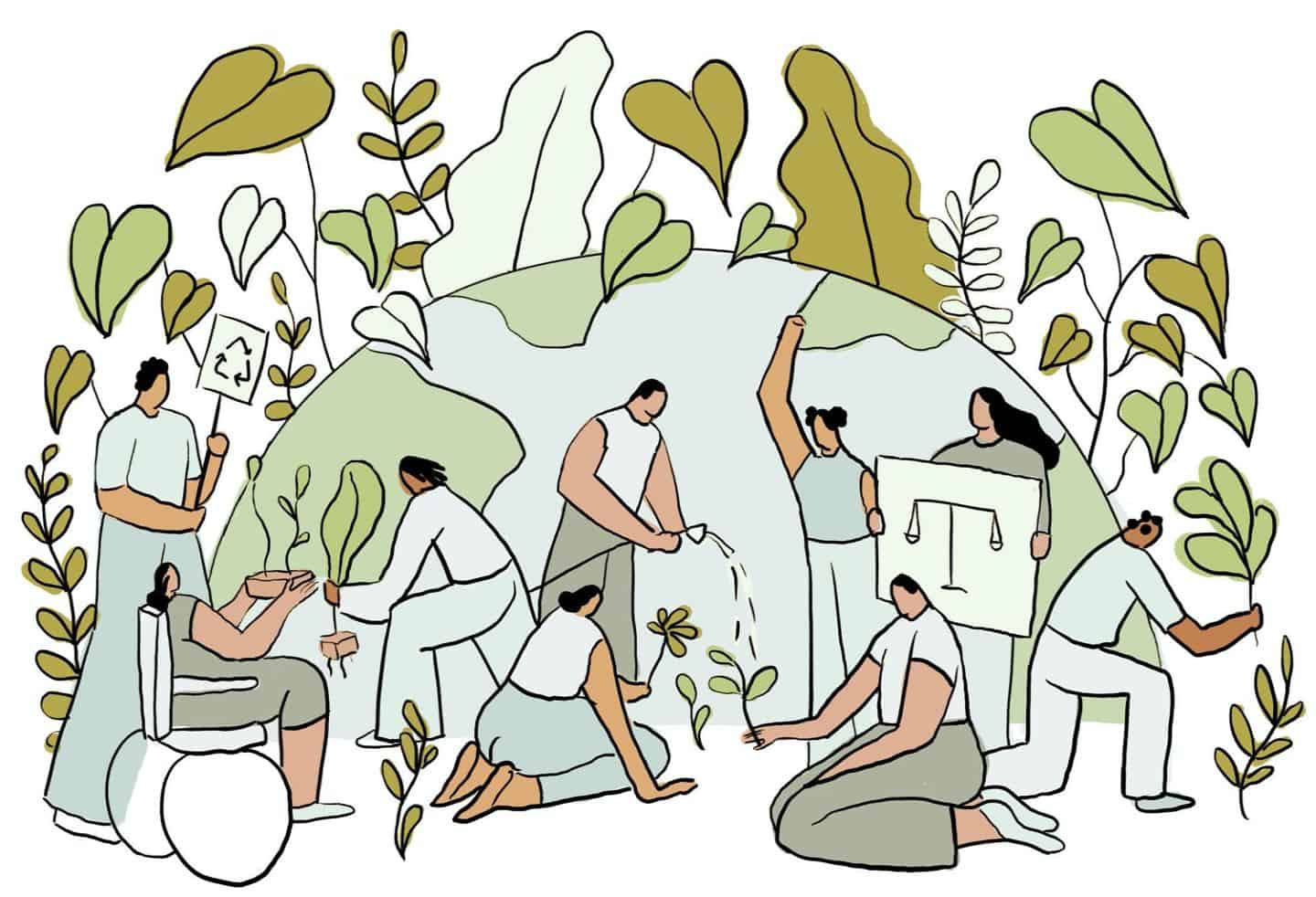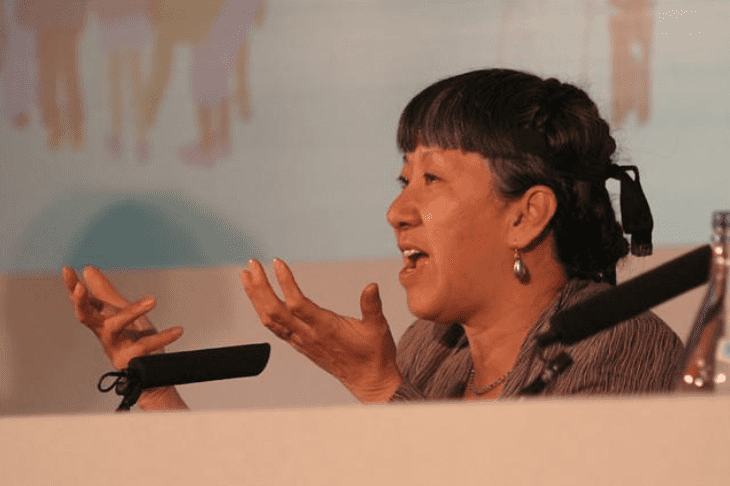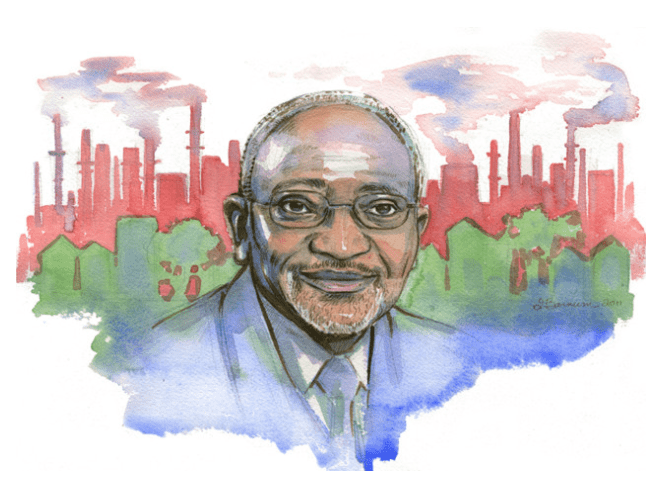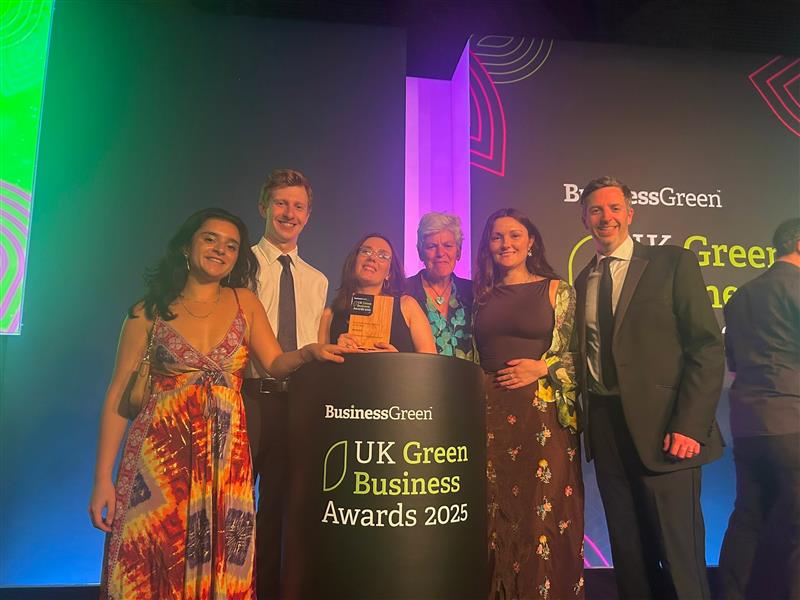Why environmental justice means racial justice: Pioneers we can learn from

After the mass protests across the world in support of the “Black Lives Matter” movement, it is clear we need to continue to elevate black voices in the environmental justice movement. Pioneers are redefining the environmental narrative by bringing black-green voices to the forefront of the climate crisis. A recent New York Times article highlighted the relationship racial equality would have to a greener environment, revealing comments from activists who claim “It’s impossible to live sustainably without tackling inequality”. Here at Greenhouse, we are facing up to these uncomfortable truths and have pledged to use our channels to celebrate black environmentalists, tell their stories and amplify their voices. We will champion the need for racial equality to be part of the climate justice movement.
What is the connection?
Racial discrimination alongside the wider workings of societal pitfalls has meant that black and other non-white families have faced no alternative to settling in lower socio-economic neighbourhoods, victim to minimal green investments. 350.org, an international, environmental organisation explains that the many facets of racism “manifest [themselves] clearly in environmental and climate issues”. It shows how racism in Brazil has exacerbated climate change, and that its environmental victims are not simply ‘naturally unlucky’ – an assumption which has held back the fight towards a cleaner world. It is paramount that green businesses consider the racial implications for communities set up to suffer from environmental problems, in order to make successful strides in their green initiatives. By recognising that this connection prohibits the overall work towards a fairer and healthier planet, the future potentials of environmental campaigning are limitless.
Who are the environmental justice pioneers?
At Greenhouse, we are working with Climate Reframe – a project to amplify BAME voices in the UK environmental movement. Climate Reframe celebrates an extensive list of BAME activists ranging from actors, to political figures. Below we will highlight just a handful of these green, black voices.
Brianna Francis

Brianna Francis has used her background in environmental science to develop the studies on climate impacts of Small Island Developing States as inspired by her Caribbean heritage. Francis words as an environmental sustainability coordinator for Julie’s Bicycle – a London-based charity that encourages the creative community to act on climate change and environmental sustainability. Francis’ expertise in data analysis makes her an integral part of managing annual submissions to the Arts Council environmental report and continues to be an inspiration to the cultural sector by providing the creative community with the skills to influence others through creative means. “The narrative may exclude us but we have voices too.”
Naresh Ramchandani

Naresh Ramchandani is a co-founder of the organisation Do The Green Thing which was established in 2007. ‘Do The Green Thing’ uses creative channels such as podcasts, short films, posts and posters to engage and encourage people to fight against environmental degradation and inspire others to live more sustainably. Ramchandani and his colleagues take on the ‘status quo’ of unsustainable activities, and use provocative means to challenge people’s habits and convince them that sustainable choices are just as easy as unsustainable ones. Ramchandani started off as a partner at the design firm Pentagram and pledges what he calls “communications with a conscience”. Find out more about the Do the Green Thing network on their Instagram page, which celebrates over 500 creatives all helping to donate their time and expertise to Ramchandani’s fight against climate change using creativity.
Binyam Yakob Gabreyes

Binyam Yakob Gebreyes is an expert in environmental law, advising and working closely with the Least Developed Countries (LDC) group at UN climate discussions. Gebreyes has dedicated his career to ensuring LDCs’ concerns are reflected throughout negotiations, and also provides training on environmental policy issues for representatives of these countries. Gebreyes is currently a researcher for the International Institute for Environment and Development. The IIED is a think-tank based in the UK which seeks to highlight social and political debates within environmentalism and provides a platform for these ideas to be discussed critically. A notable piece of Gebreyes’ work – ‘Supporting LDCs to strengthen national legislative and policy responses in line with international climate commitments’ – can be found here.
Judy Ling Wong CBE OBE

Judy Ling Wong is the honorary President of Black Environment Network (BEN), and an environmentalist who has received international recognition for her poetry and paintings. BEN was established to create a network of non-white groups to encourage ethnic participation in the built and natural environment. Judy Ling Wong is based in London and, through BEN, engages both individuals in the community to get involved in environmental projects. She also works to train and aid mainstream organisations in how they work effectively with ethnic communities. This ensures the way of working is socially and culturally relevant producing impactful results. Judy Ling Wong says herself that the motivation of BEN is for them to do themselves out of a job. More on BEN and Judy Ling Wong’s notable work can be found on her Twitter page.
Dr Robert D. Bullard

Finally, a message of recognition to Dr Robert D Bullard, hailed as ‘the Father of Environmental Justice’. and named on Apolitical’s list of the 100 Most Influential People in Climate Policy 2019. Bullard is paving the way in his publications reaching millions around the globe in the fight for environmental justice. His works include ‘Environmental health and racial equity in the United States’ and ‘Race, place and environmental justice after Hurricane Katrina’. Bullard’s contribution to both theory and policy progression in the environmental justice movement continue to remind us of the benefits of an environmentally conscious society which also includes black voices. “Grassroots groups challenge the “business as usual” environmentalism…The focus of activists of colour and their constituents reflects their life experiences of social, economic, and political disenfranchisement.”
A promising road ahead
Looking forward, and taking inspiration from these figureheads trailblazing a greener future, we should strive to change how we understand environmental issues, not as secondary to social justice, but rather see how they are intertwined. We must work within the environmental community to reverse the unfortunate trend of a decline in diversity seen amongst the staff that make up environmental organisations in the US. A recent Vice article reports that although federations such as ‘The National Wildlife Federation have pledged to dedicate part of their Fellowship and Intern Program to young biologists of colour, there is a continued need to encourage minority groups to enter the environmental conversation to help reveal structures that stand against change. A recent article by Greenhouse PR’s CEO Anna Guyer urges us to “re-imagine a world based on new values for people, planet and profit.” Once these are recognised more widely, we can divest from systems of oppression, both environmentally and socially and invest in a greener, safer world.
Greenhouse PR works with organisations and leaders who are pioneering climate action. Whether it’s food, fashion, finance or farming, if you’ve got a great story and need our help to tell it, get in touch with the Greenhouse team on 0117 214 1250 or email info@greenhousepr.co.uk.


